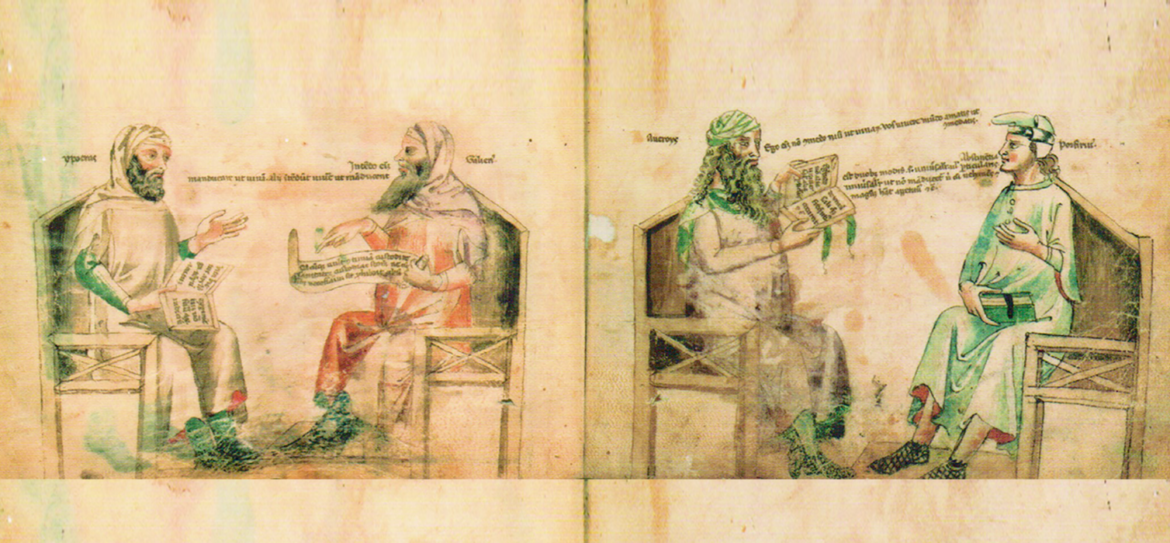Il y a un objet culturel qui va jouer un rôle essentiel dans la perception d’autrui : c’est le langage. Dans l’expérience du dialogue, il se constitue entre autrui et moi un terrain commun, ma pensée et la sienne ne font qu’un seul tissu, mes propos et ceux de l’interlocuteur sont appelés par l’état de la discussion, ils s’insèrent dans une opération commune dont aucun de nous n’est le créateur. (…) Nous sommes l’un pour l’autre collaborateurs dans une réciprocité parfaite, nos perspectives glissent l’une dans l’autre, nous coexistons à travers un même monde. Dans le dialogue présent, je suis libéré de moi-même, les pensées d’autrui sont bien des pensées siennes, ce n’est pas moi qui les forme, bien que je les saisisse aussitôt nées ou que je les devance, et même, l’objection que me fait l’interlocuteur m’arrache des pensées que je ne savais pas posséder, de sorte que si je lui prête des pensées, il me fait penser en retour.
There is one particular cultural object which is destined to play a crucial rôle in the perception of other people: language. In the experience of dialogue, there is constituted between the other person and myself a common ground; my thought and his are inter-woven into a single fabric, my words and those of my interlocutor are called forth by the state of the discussion, and they are inserted into a shared operation of which neither of us is the creator. (…) we are collaborators for each other in perfect reciprocity. Our perspectives merge into each other, and we co-exist through a common world. In the present dialogue, I am freed from myself, for the other person’s thoughts are certainly his; they are not of my making, though I do grasp them the moment they come into being, or even anticipate them. And indeed, the objection which my inter- locutor raises to what I say draws from me thoughts which I had no idea I possessed, so that at the same time that I lend him thoughts, he reciprocates by making me think too.
M. Merleau-ponty, Phénoménologie de la perception, pp 407, Gallimard 1945
In Arabic there are two words corresponding to “dialogue”, the word “Hiwar” and the word “Nikach”; where “Hiwar” is the exact parallel to the English word “dialogue”, “Nikach“, means dialogue/discussion, but also comes from the verb “Nakacha” which is “to engrave”, “to carve” and “chisel”; Thus to the ethic virtues of Hiwar is added here the aesthetic quality of Nakch (engraving); to the dialogue virtues, which establish the other in a close proximity, where both parties are collaborating one with another in perfect reciprocity, is here added an artistic value; With Nikach the dialogue is also a work of art, it carve and chisel in the matter of language, with its sharp awareness it gave the dialogue the shape of an arabesque or an embroidered cloth. The artistic value here is not ornamental, but it participate actively to the ethic value of the dialogue, by installing a generous hospitality, an art of receiving and being with one another.
This second Focus promote eminent figures of the dialogue between Orient and Occident through history and in the present days. It aims the study of outstanding personalities of the Orient and the Occident, who are committed to the dialogue between East and West.
Hiwar & Nikach Focus goes in two lines:
Oblique Programme emphasizes and analyses historical encounter between eminent personalities from Orient and Occident.
“The Sultan and the Saint: Malik Al-Kamil & Francisco d’Assisi”, inaugurate this line of dialogues.
Parallels Programme studies eminent personalities in the Orient and their correspondence in the Occident, beyond contemporaneity, who did not necessarily meet but shares the same humanist values, also personalities that did influence one another or starting from different standpoints reached the same position if not neighboring positions.
“Ibn Arabi & Plato” inaugurate the series of Parallels
Illustration: Constantine the african & Hunayn Ibn Ishaq / Averroes & Porphyry, Liber de herbis et plantis, Manfred de Monte Imperiali, the first half of XIVth century, Bibliothèque Nationale de France, Paris.

